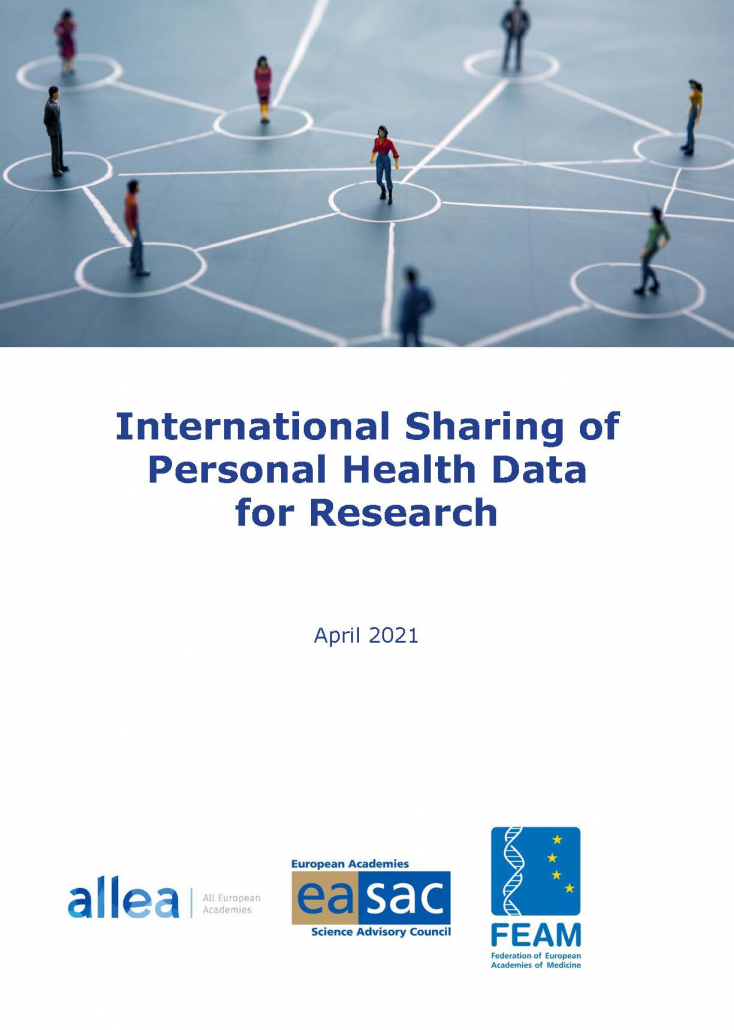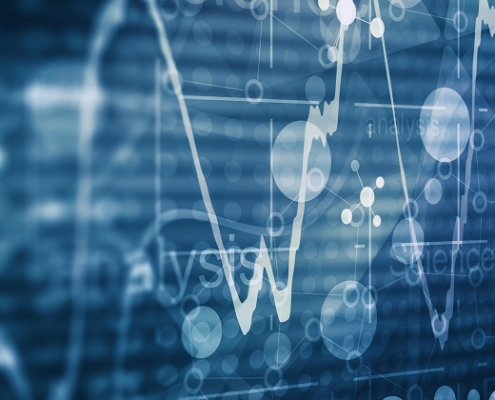International Sharing of Personal Health Data for Research
Data sharing is an essential part of modern international research. In medical research, pooled data on individuals are often needed to obtain sufficiently large study numbers and to ensure that research conducted elsewhere is also relevant for patients in Europe. Ultimately, global sharing of health data is key to maximise the individual and societal benefits to be obtained from the contribution of research participants.
Currently, the transfer of personal health data to non-EU/European Economic Area (EAA, which comprises EU member states plus Iceland, Liechtenstein, and Norway) countries is being hampered by the EU’s General Data Protection Regulation 2016/679 (GDPR). When institutions in other countries have statutory conflicts that prevent them from signing the required contracts under the GDPR, there is presently no workable legal mechanism for sharing pseudonymised health data for public sector research.
On 8 April 2021, ALLEA, the European Academies’ Science Advisory Council (EASAC), and the Federation of European Academies of Medicine (FEAM) published the joint report “International sharing of personal health data for research”. The report discusses how global sharing of health data benefits public research, describes the challenges imposed by the GDPR, and provides possible solutions through adapting or expanding the existing legal framework.
About the Report
The joint report is based on discussions between experts from across Europe that were nominated by member academies of ALLEA, EASAC, and FEAM and acted in an individual capacity, bringing together all relevant disciplines and expertise for this topic of great shared importance for all. The participants convened virtually in two working group meetings (June 2020 and September 2020) and an online cross-sectoral roundtable (October 2020). The resulting draft report was peer-reviewed by independent academy-nominated experts.
Key takeaways from the report:
- Health research is crucial for all: it benefits individual patients, population health, development of health-care systems, and social cohesion and stability.
- Sharing pseudonymised personal health data for public sector research is essential to make effective use of limited resources.
- Data must be shared safely and efficiently, taking account of privacy concerns: this is part of the conduct of responsible science and addressing these opportunities should be part of wider initiatives to build trust in research and researchers and to take account of patient views.
- Legal challenges have resulted in impediments to data sharing with researchers outside the EU/EEA, affecting both the direct transfer of data to non-EU/EEA countries and remote access to data at its original location.
- There must be increased commitment by the European Commission to urgently overcome these barriers in sharing data. Preferably, a simple and consistent operational solution would be found under Article 46 of the GDPR, whilst protecting the privacy of personal data from EU/EEA citizens.
On 2 August 2021, lead authors of the joint report published a Comment in Nature Medicine to bring the main conclusions and recommendations to the attention of the broader medical community. A news feature in the Lancet Oncology describes the main findings in the context of international cancer research. The report was also discussed in a variety of national and international media outlets, including leading research policy news sources such as Science|Business, Research Professional, EURACTIV, and Politico.
Tripartite Collaboration
This is the first report published by the tripartite collaboration between ALLEA, EASAC, and FEAM and benefits from the complementary expertise joined in these networks. EASAC has a history of interest in optimising the use of health research data, and worked together with FEAM in providing evidence on the value of research and the need for collaborative activity, in previous discussions with the European Commission and Parliament (e.g. ‘’Protecting health and scientific research in the Data Protection Regulation’’). FEAM has collaborated with numerous health stakeholders to issue recommendations in view of the discussions preceding the GDPR (e.g. “Ensuring a healthy future for scientific research through the Data Protection Regulation”). ALLEA has significant interest in the benefits and challenges of collecting, sharing and using data (see our activities on “Data Governance”) and provides the project with a broad and interdisciplinary perspective.
Previously, ALLEA, FEAM and EASAC published a joint open letter to the EU Health Commissioner on the Implications of the ECJ decision on the “Shrems II” for international sharing of health data for research.
ALLEA Contact Person
Dr Mathijs Vleugel
Scientific Policy Officer
vleugel@allea.org








